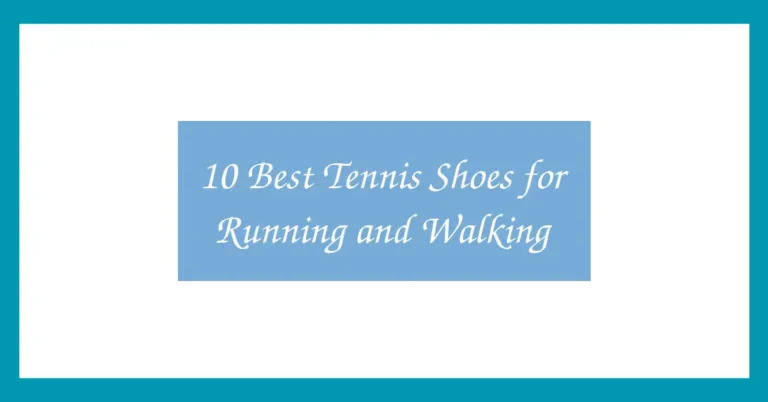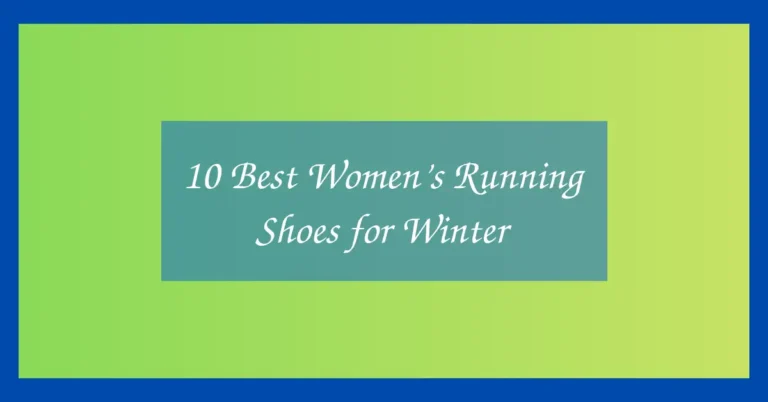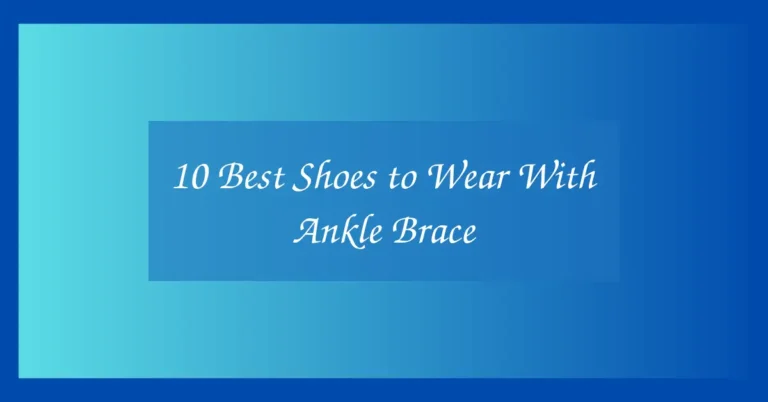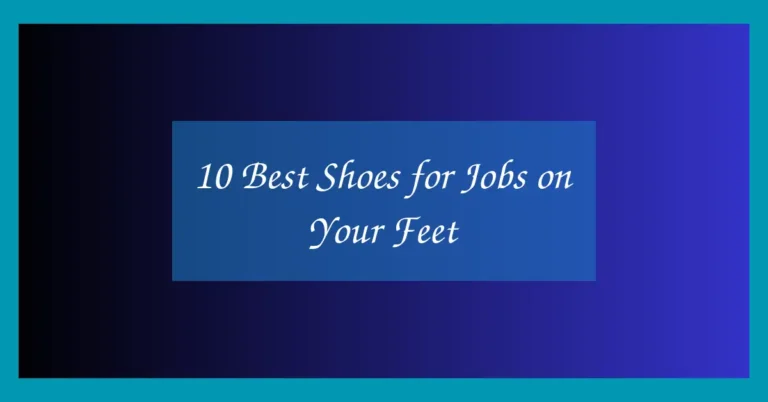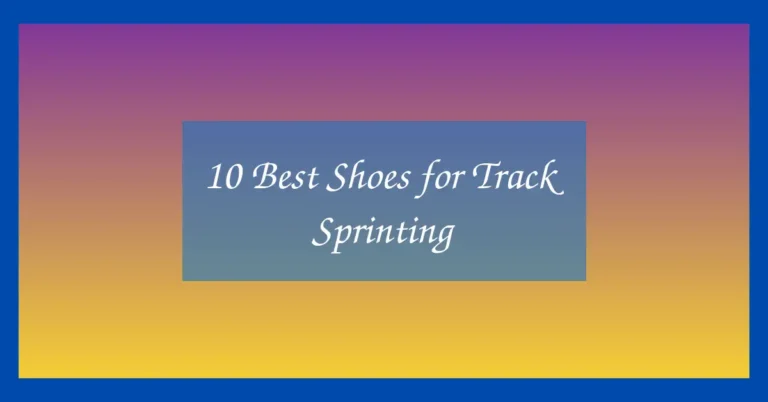The Ultimate Guide to the Best Tennis Shoes for Roofing Adventures
When it comes to roofing, the right footwear can make all the difference in both safety and job performance. Tennis shoes are a popular option among roofers thanks to their balance of comfort, grip, and support. However, not all tennis shoes are created equal, especially for the demands of working on rooftops. Slippery surfaces, varying weather conditions, and long hours on your feet mean your shoes need to provide more than just basic comfort. Choosing the best tennis shoes for roofing can help prevent slips, reduce fatigue, and keep your feet protected throughout the day. This guide explores what features to look for and which shoes offer the best value for roofers.
Best Tennis Shoes for Roofing
Table of Contents
Toggle1. Nike Air Zoom Vapor Cage 4
The Nike Air Zoom Vapor Cage 4 stands out as a high-performance tennis shoe that excels in challenging conditions, making it a solid choice for roofing professionals. Its outsole is made from extra-durable, abrasion-resistant rubber, specifically designed for hard courts, which translates well to the gritty, rough surfaces found on many rooftops. The herringbone tread provides multidirectional grip, which is essential for maintaining traction when moving up and down pitched roofs. Additionally, the DragGuard technology integrated into the toe and medial areas ensures the shoe can withstand frequent kneeling or dragging across abrasive surfaces like shingles.
Comfort is another hallmark of the Vapor Cage 4. The midsole incorporates Nike’s Zoom Air cushioning, which delivers excellent shock absorption and reduces foot fatigue during long workdays. The upper blends flexible mesh with synthetic overlays, offering both breathability and structural support. This means your feet stay cooler under the sun while still being protected from impact and debris.
One feature roofers will appreciate is the snug fit. The unique lacing system wraps around the foot for a locked-in feel, reducing the risk of slippage on angled surfaces. At the same time, the tongue and collar are well-padded, minimizing hotspots and discomfort. The toe area is reinforced, adding durability for crawling or sliding motions.
These shoes are also lightweight compared to many work-specific options, promoting agility and making them less tiring during long shifts. However, they are not fully waterproof, so caution is needed in wet conditions. While they cost more than basic tennis shoes, the extra investment pays off in durability and all-day comfort.
Pros:
-
Exceptional grip on sloped surfaces
-
Durable, abrasion-resistant outsole
-
Responsive Zoom Air cushioning
-
Breathable mesh upper
-
Snug, secure fit
Cons:
-
Not waterproof
-
Premium price point
-
Limited color options
2. New Balance 996v5
The New Balance 996v5 is a reliable, versatile tennis shoe that adapts well to the demands of roofing. Known for its lightweight feel and solid construction, the 996v5’s NDurance rubber outsole offers impressive traction on a variety of surfaces, including asphalt shingles and metal panels. The tread is specifically designed for court grip, providing excellent stability and slip resistance when navigating steep or uneven roofs. The shoe’s low profile adds to your sense of balance and control.
Durability is a strong suit for the 996v5. Its upper features reinforced mesh and synthetic materials, which resist abrasions and extend the shoe’s lifespan even with frequent use in rough environments. The toe guard is an added bonus, protecting against the scuffing that often comes with roofing work. Stitching and overlays are robust, ensuring the shoe holds up well under repetitive stress.
Comfort is another reason to choose the 996v5. The FuelCell foam midsole offers high energy return and cushioning, helping reduce fatigue over long days. A well-padded collar and a breathable lining ensure your feet remain comfortable and cool, even during extended periods in the sun. The fit is snug without being restrictive, with ample room in the toe box for natural movement.
One standout feature is the lightweight design, which helps prevent foot and leg fatigue. The shoe remains stable and supportive, even with the reduced weight. However, the sole is not as thick as some work-specific shoes, so those needing extra underfoot protection may want to add an aftermarket insole. While water resistance is adequate for light moisture, these are not rain shoes.
Overall, the New Balance 996v5 is an excellent choice for roofers seeking agility, grip, and lasting comfort in a lightweight package.
Pros:
-
Excellent traction and slip resistance
-
Lightweight and agile
-
Reinforced, abrasion-resistant upper
-
Comfortable FuelCell foam midsole
-
Breathable construction
Cons:
-
Moderate water resistance only
-
Less cushioning than some models
-
Not ideal for extremely rugged roofs
3. Adidas Barricade Tennis Shoes
The Adidas Barricade Tennis Shoes have long been a favorite among those who need both stability and durability, traits that make them well-suited for roofing work. The shoe’s Adiwear outsole is made from high-density rubber, providing top-tier traction and wear resistance on rough surfaces like shingles or tiles. The herringbone tread pattern delivers multidirectional grip, allowing for confident footing on both flat and steep inclines. The reinforced toe box is especially valuable for roofers who spend time kneeling or dragging their feet across gritty surfaces.
Comfort is built into every aspect of the Barricade. The Bounce midsole offers responsive cushioning, absorbing shock and keeping feet fresh even after hours of use. The Geofit heel design molds to the shape of your foot, creating a custom feel and reducing the risk of blisters. A padded tongue and collar add extra support, further enhancing the overall comfort level.
The upper is constructed with a combination of mesh and synthetic leather, striking a balance between breathability and protection. Mesh panels allow airflow to keep your feet cool, while the synthetic sections shield against abrasions. The fit is secure, with a supportive midfoot and a slightly wider toe box to accommodate natural movement and prevent pinching.
These shoes are slightly heavier than some ultra-light tennis models, but the added weight brings more stability, which can be reassuring on steep rooftops. They are not fully waterproof, so it’s best to avoid them in wet conditions. However, their durability and strong construction mean they’ll outlast many other tennis shoes when used for roofing.
If you value stability, comfort, and resilience, the Adidas Barricade is a reliable companion for long hours on the roof.
Pros:
-
Superior durability and grip
-
Comfortable Bounce midsole
-
Reinforced toe box for protection
-
Stable fit with good support
-
Breathable yet protective upper
Cons:
-
Slightly heavier than some options
-
Not waterproof
-
Premium price
4. Reebok Club MEMT Sneaker
The Reebok Club MEMT Sneaker is an underrated option that has found a following among roofers looking for comfort and value. Originally designed for tennis and casual use, it has the right mix of features for light to moderate roofing work. The shoe’s full rubber outsole delivers good traction on a variety of surfaces, including shingles, metal, and plywood. While not as aggressive as some sports outsoles, the grip is reliable for most dry roofing conditions.
What sets the Club MEMT apart is its comfort. The Memory Tech footbed molds to your foot, offering excellent cushioning for long shifts. The padded collar and tongue reduce pressure on the ankle, and the shoe’s low-cut design allows for natural mobility. The upper is made from soft synthetic leather, which provides a bit of protection while remaining lightweight and flexible.
Durability is reasonable for its price point, though the softer upper means these shoes are best for lighter roofing tasks rather than heavy-duty professional use. The construction is sturdy, with double stitching in high-wear areas. Breathability is decent, though not as high as mesh-based shoes, making these more suitable for moderate temperatures.
The fit is relaxed but not loose, with enough room for wider feet. They slip on and off easily, which is convenient for quick breaks. However, the shoe is not water-resistant, and the traction may be less reliable on steep or wet roofs.
For homeowners, DIYers, or those looking for a comfortable and affordable option for occasional roofing, the Reebok Club MEMT Sneaker offers solid performance and comfort without breaking the bank.
Pros:
-
Very comfortable Memory Tech footbed
-
Lightweight and flexible
-
Good value for the price
-
Decent traction on dry surfaces
-
Easy to put on and take off
Cons:
-
Not designed for heavy-duty use
-
Limited breathability in hot weather
-
Not water-resistant
5. ASICS Gel-Dedicate 8
The ASICS Gel-Dedicate 8 is another strong contender for roofers, especially those seeking a blend of support, comfort, and affordability. The shoe’s durable rubber outsole provides reliable traction, with a tread pattern that offers grip on a range of roof types, from asphalt shingles to tar paper. ASICS’s Trusstic System technology stabilizes the midfoot, helping prevent slips or ankle rolls when moving on uneven surfaces.
Comfort is a priority in the Gel-Dedicate 8. The rearfoot GEL cushioning system absorbs impact, reducing stress on your feet during long days on the roof. The padded collar and tongue add another layer of comfort, while the breathable mesh upper keeps feet cool under pressure. The fit is designed to hug the foot without squeezing, offering a nice balance of security and freedom of movement.
Durability is impressive for the price, with reinforced toe and heel areas protecting the shoe from scuffs and wear. The synthetic overlays add structural integrity, ensuring the shoes don’t break down quickly under demanding conditions. While they are not as robust as some top-tier tennis shoes, they hold up well for regular roofing use.
The Gel-Dedicate 8 is also lightweight, making it easy to move quickly and comfortably on the roof. However, it lacks significant water resistance, so it’s best suited for dry days. The insole can be removed to accommodate custom orthotics, which is a bonus for those with specific foot support needs.
For roofers who want value, reliable performance, and all-day comfort, the ASICS Gel-Dedicate 8 is a dependable pick.
Pros:
-
Reliable traction on multiple surfaces
-
Excellent GEL cushioning for comfort
-
Lightweight and agile
-
Breathable mesh upper
-
Affordable price
Cons:
-
Limited water resistance
-
Not as rugged as premium models
-
Moderate arch support only
6. K-Swiss Hypercourt Express 2
The K-Swiss Hypercourt Express 2 has earned a solid reputation for its comfort and stability, making it an unexpected but welcome option for roofing professionals. This shoe features a DragGuard rubber outsole that resists abrasion and delivers a consistent grip on various roof materials. The tread pattern is designed for tennis courts but performs admirably on shingles and plywood, helping to reduce the risk of slips when working on inclined surfaces. The outsole wraps up at the sides, adding extra protection during side-to-side movements.
What sets this shoe apart is its plush, cushioned interior. The Surgelite midsole provides both responsiveness and long-lasting comfort, which is crucial for those who spend many hours on their feet. The molded EVA sockliner contours to your foot, offering customized support and helping to prevent fatigue throughout the day. The shoe’s broad platform increases stability, which is valuable for roofers who require confidence in their footing.
The upper is made from lightweight mesh and synthetic materials, offering good breathability and keeping feet cool under the sun. The DuraWrap layer reinforces high-wear areas, enhancing durability against shingles and rough surfaces. Double-stitched seams add to the shoe’s overall resilience, so you can expect it to last through demanding tasks.
Fit is another highlight. The Hypercourt Express 2 is known for accommodating wider feet, providing a roomy toe box without sacrificing support. The padded tongue and collar further boost comfort, and the lacing system allows for an adjustable, secure fit. However, while the mesh upper is breathable, it is not water-resistant, so use caution in wet conditions.
For roofers who prioritize stability, comfort, and a wide fit, the K-Swiss Hypercourt Express 2 delivers impressive all-day performance.
Pros:
-
Superior comfort with plush cushioning
-
Wide, stable platform
-
Durable, abrasion-resistant outsole
-
Breathable mesh upper
-
Good fit for wider feet
Cons:
-
Not water-resistant
-
Mesh can wear out with rough use
-
Heavier than minimalist models
7. Wilson Rush Pro 4.0
The Wilson Rush Pro 4.0 is engineered for aggressive court play, but its qualities translate well to the demands of roofing. The shoe features a Duralast rubber outsole with a unique traction pattern, providing outstanding grip on both flat and angled roofs. The robust rubber compound withstands abrasions from rough surfaces, making it a dependable option for those who regularly work on different roof types.
Comfort is a core strength of the Rush Pro 4.0. The R-DST+ foam midsole balances cushioning and responsiveness, effectively absorbing shock from frequent stepping and kneeling. The Sensifeel 2.0 mesh upper is lightweight and well-ventilated, keeping your feet cool even during long hours in the heat. An Endofit inner sleeve wraps the foot for a snug, sock-like fit that enhances stability and control.
The shoe is built to last, with reinforced toe and heel sections that guard against scuffing. Stitching and synthetic overlays further contribute to the shoe’s ruggedness, helping it withstand daily use on abrasive surfaces. The heel counter and TPU midfoot shank add support, reducing the risk of ankle twists or slips.
A key feature is the shoe’s low-to-the-ground feel, which gives excellent feedback from the roof surface and allows for nimble footwork. The Rush Pro 4.0 is also relatively lightweight, which minimizes fatigue during extended use. However, the narrow fit may not be ideal for those with wide feet, and water resistance is limited to light moisture.
Overall, the Wilson Rush Pro 4.0 is a top performer for roofers needing superior grip, stability, and comfort in a lightweight package.
Pros:
-
Excellent traction and grip
-
Lightweight, low-to-the-ground design
-
Responsive cushioning
-
Reinforced in high-wear areas
-
Breathable, supportive upper
Cons:
-
Not suited for wide feet
-
Limited water resistance
-
Pricey for a tennis shoe
8. Prince T22 Tennis Shoe
The Prince T22 Tennis Shoe is a well-known classic in the world of court sports, but its features make it an exceptional choice for roofing work. The PRC 1000 rubber outsole provides a high level of traction, which translates well to roof surfaces that require steady footing. The tread is deep and multidirectional, gripping securely on shingles and tiles, while the outsole wraps around the toe and sides for added durability during crawling or shifting positions.
One of the T22’s greatest assets is its blend of support and cushioning. The EVA midsole is paired with ShockEraser heel cushioning, absorbing impact and helping to reduce leg fatigue during long shifts. The shoe is constructed to promote natural movement while offering sufficient structure to keep your foot stable and supported.
Breathability is achieved through mesh panels that line the upper, encouraging airflow and helping to prevent excessive sweating. Synthetic overlays in critical zones increase resistance to abrasion, allowing the shoe to hold up even after repeated contact with rough surfaces. The toe guard is particularly robust, which is an advantage for roofers who kneel or crawl frequently.
Fit is consistent, with a generous toe box and a secure lacing system. The T22 is known for accommodating various foot shapes, making it a solid choice for those who struggle to find comfortable tennis shoes. The shoe is slightly heavier than average, which adds to its feeling of security but might not suit those who prefer ultralight options.
For durability, support, and reliable traction, the Prince T22 is a versatile shoe that can take on the rigors of roofing.
Pros:
-
Superior traction with deep tread
-
Excellent support and shock absorption
-
Durable construction, especially in toe area
-
Good fit for various foot shapes
-
Breathable mesh panels
Cons:
-
Slightly heavier than some competitors
-
Not fully water-resistant
-
Bulky appearance
9. HEAD Sprint Pro 3.5
The HEAD Sprint Pro 3.5 is designed for speed and agility on the tennis court, making it a smart choice for roofers who value lightweight comfort and reliable traction. Its Hybrasion+ rubber outsole features a multidirectional tread that performs well on both smooth and gritty surfaces, providing confidence when moving across pitched roofs or transitioning from one section to another.
Cushioning is provided by the TRI-NRG midsole technology, which offers both shock absorption and stability. This helps protect your feet and joints during prolonged periods on hard surfaces. The shoe is impressively lightweight, allowing for quick movement and reducing fatigue during long days on the job. The fit is precise, thanks to the snug heel and secure lacing system.
The upper is crafted from lightweight mesh with TPU reinforcements, striking an effective balance between breathability and structural support. This keeps your feet cool and comfortable while offering enough durability to stand up to daily use on rooftops. The anti-slip heel lining ensures the shoe stays securely on your foot, even during demanding tasks.
Durability is respectable for a lightweight shoe, with reinforced areas protecting against abrasion. However, this model is best suited to roofers who work primarily in dry conditions, as the mesh upper does not offer much water resistance. The streamlined design means less bulk, which some users may find results in less underfoot protection on extremely rough or sharp roof surfaces.
For roofers who want a lightweight, supportive shoe that doesn’t compromise on grip or comfort, the HEAD Sprint Pro 3.5 is an excellent contender.
Pros:
-
Lightweight and agile
-
Excellent multidirectional traction
-
Breathable mesh upper
-
Snug, secure fit
-
Shock-absorbing midsole
Cons:
-
Limited water resistance
-
Less underfoot protection than heavier shoes
-
Narrow fit for some users
10. Fila Axilus 2 Energized
The Fila Axilus 2 Energized is a high-performance tennis shoe that brings a winning combination of stability, durability, and comfort to the roofing environment. The Evergrind rubber outsole is made for demanding play, offering strong grip and abrasion resistance across a variety of surfaces. Its carefully designed tread pattern helps prevent slips on angled or uneven roofs, giving roofers the traction needed for safe movement.
Comfort is at the forefront, with an Energized rubber midsole that delivers both cushioning and energy return. The insole is soft and responsive, reducing fatigue and allowing you to stay on your feet longer without discomfort. A molded cage at the midfoot offers additional support, helping to stabilize each step and prevent rolling or twisting.
The upper combines mesh and synthetic materials, providing breathability without sacrificing durability. Perforations throughout the toe box and sides ensure good airflow, making the Axilus 2 a suitable choice for hot, sunny days. Reinforced panels protect high-wear areas, ensuring the shoes can withstand the friction and scrapes common in roofing work.
Fit is a standout feature, with a balance of snugness and room in the toe box, accommodating various foot shapes. The padded collar and tongue add to the comfort, while the lightweight design means you can move quickly and efficiently around the job site. However, this model is not designed for wet conditions, and the mesh upper may not protect against sharp debris as effectively as leather options.
The Fila Axilus 2 Energized is ideal for roofers who want maximum comfort, reliable grip, and long-term value.
Pros:
-
Excellent grip and abrasion resistance
-
Comfortable and responsive cushioning
-
Breathable design for warm weather
-
Supportive midfoot cage
-
Lightweight and flexible
Cons:
-
Not waterproof
-
Mesh upper less protective against sharp objects
-
Lighter materials may wear faster with heavy use
Buyer’s Guide
Roofing is a physically demanding job that puts your footwear to the test. Selecting the right tennis shoes for roofing requires a close look at several key factors. Here’s what you need to consider before making your choice:
1. Grip and Traction
The most critical feature for any roofing shoe is grip. Roof surfaces can be steep, uneven, and slippery—especially if there’s dust, debris, or moisture present. Look for tennis shoes with a rubber outsole that features a patterned or textured tread. Outsoles made with sticky rubber compounds tend to offer better traction on asphalt shingles, metal, or tile. Avoid shoes with smooth or flat soles, as these can be hazardous on angled surfaces.
2. Durability
Roofing wears out shoes fast. Durability ensures you get value for your money and don’t have to replace shoes frequently. Seek shoes with reinforced toe caps, double-stitched seams, and high-quality upper materials like genuine leather or tough synthetic mesh. A shoe that resists abrasion from shingles and rough surfaces will last longer.
3. Comfort and Cushioning
Long hours on a roof mean a lot of time standing, crouching, and moving. Shoes should have adequate cushioning to absorb shock and reduce fatigue. Memory foam insoles, EVA midsoles, and padded collars can all add comfort. Proper arch support is also essential to prevent foot pain during extended wear.
4. Breathability
Roofers often work in the sun, so breathability becomes crucial. Shoes with mesh panels or moisture-wicking linings help keep feet cool and reduce sweat buildup. This not only improves comfort but also minimizes odor and the risk of blisters.
5. Weight
Heavy shoes can make moving around on a roof feel cumbersome. Lightweight tennis shoes allow for easier movement and better agility. However, balance is key: ultra-lightweight shoes may not provide enough protection or durability.
6. Fit and Support
A secure fit is non-negotiable. Shoes that are too loose increase the risk of slipping, while shoes that are too tight can cause discomfort. Look for models with a snug heel, ample toe room, and adjustable lacing for a customized fit. Some shoes also offer additional support features, such as heel counters or midfoot shanks, which help maintain stability on uneven terrain.
7. Water Resistance
Unexpected rain or morning dew can make roofs slippery and wet. Water-resistant or quick-drying shoes provide an extra layer of safety. Consider shoes with treated uppers or water-repellent finishes, especially if you work in damp conditions.
8. What to Avoid
-
Shoes with hard plastic outsoles that slip easily.
-
Fashion-focused tennis shoes lacking reinforcement or grip.
-
Shoes without arch support or adequate cushioning.
-
Models that fit loosely or do not lace securely.
-
Non-breathable shoes, which can lead to overheating and discomfort.
FAQ
1. Can I use regular tennis shoes for roofing, or do I need specialized shoes?
While some regular tennis shoes can work for roofing, it’s essential to choose models that offer strong grip, durable construction, and adequate foot support. Many “regular” tennis shoes aren’t built to handle abrasive shingles or slippery slopes, so always check the sole pattern and material before using them for roofing.
2. What type of sole pattern provides the best traction for roofing?
Shoes with deep, multi-directional treads or sticky rubber outsoles tend to provide the best grip on roofs. Look for soles designed for court sports or trail running, as these usually have superior traction. Avoid completely flat or overly smooth soles, which are much more likely to slip.
3. How important is breathability in roofing shoes?
Breathability is very important, especially if you work in hot weather. Shoes with mesh uppers or moisture-wicking linings keep your feet cooler and drier, reducing the risk of blisters and discomfort from sweat accumulation during long workdays.
4. Are steel-toe or safety-toe tennis shoes recommended for roofing?
Steel-toe or composite-toe shoes provide extra protection but are not always necessary for roofing unless your job requires handling heavy tools or materials. For most roofing tasks, a reinforced toe area (without a full steel cap) is enough. Steel-toe shoes also tend to be heavier, which can be a drawback on a roof.
5. How can I make tennis shoes last longer when using them for roofing?
Choose shoes made with reinforced stitching and abrasion-resistant materials. Rotate pairs if possible, and clean them regularly to remove grit and tar. Avoid wearing your roofing shoes on the ground or for other activities, as this accelerates wear. Storing them in a dry place also helps prolong their life.
6. What should I do if my shoes start slipping on the roof?
If you notice your shoes losing grip, stop working immediately and check the tread for wear or debris. Clean out any dirt, tar, or stones lodged in the sole. If the tread is worn smooth, it’s time to replace the shoes. Always have a backup pair available.
7. Are there specific brands known for good roofing tennis shoes?
Brands like Nike, New Balance, Adidas, and Reebok offer tennis or court shoes with durable soles and reliable grip. Some workwear brands, such as Merrell and Skechers Work, also make athletic-styled shoes designed for job site use. Regardless of brand, prioritize features over labels and always check customer reviews for feedback from others in the roofing trade.
Conclusion
Choosing the right tennis shoes for roofing is essential for staying safe, comfortable, and productive on the job. The best options combine superior grip, durability, cushioning, and breathability to handle the demands of roofing work. Investing in high-quality, well-fitting shoes tailored for roofing helps prevent injuries, reduces fatigue, and ensures long-term performance in challenging conditions.


